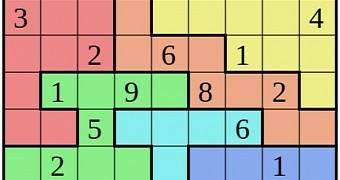The human body works in mysterious ways. There's a whole lot of wiring involved to keep it running smoothly, and should something fail, the oddest of symptoms can happen.
For instance, a study published this Monday in the medical journal JAMA Neurology details the case of a 25-year-old man from Germany who, after surviving getting caught in an avalanche while on a ski trip, started seizing when trying to solve puzzles.
It was only Sudoku riddles he had a problem with
In their report in the journal JAMA Neurology, the doctors who handled this case, among them Berend Feddersen with the University of Munich, explain that it was in November 2008 that the man was trapped in the avalanche.
His spleen ruptured, his hip bone gave out, and until rescued, he spent quite a while buried under snow without nearly enough oxygen. He did survive, however.
When saved, the young man was first rushed to hospital. He stayed here for a few weeks, during which time medical experts tended to his more obvious injuries.
Then, he was taken to a rehabilitation facility. Here, it was discovered that, when trying to solve Sudoku puzzles, a favorite pastime activity of his, the man would experience sudden and unwarranted twitches in his left arm.
The man would only experience such symptoms when trying his hand and brain at Sudoku riddles. Math problems and other teasers had no effect on him.
It was his brain that was acting up, doctors found
Live Science tells us that, having carried out a series of tests, specialists found that the 25-year-old had an especially active imagination and so would picture the numbers three-dimensionally to have an easier time putting them in order.
Due to trauma he suffered when caught in the avalanche, this exercise in imagination would result in hyperactivity in a specific brain area known as the right centro-parietal region. In turn, this made his left arm twitch uncontrollably.
The man was prescribed anti-epileptic medication and told to stay clear of Sudoku puzzles. Soon enough, he started feeling much better. “When he stopped this 3D imagination, the seizures stopped immediately,” said Berend Feddersen.

 14 DAY TRIAL //
14 DAY TRIAL //